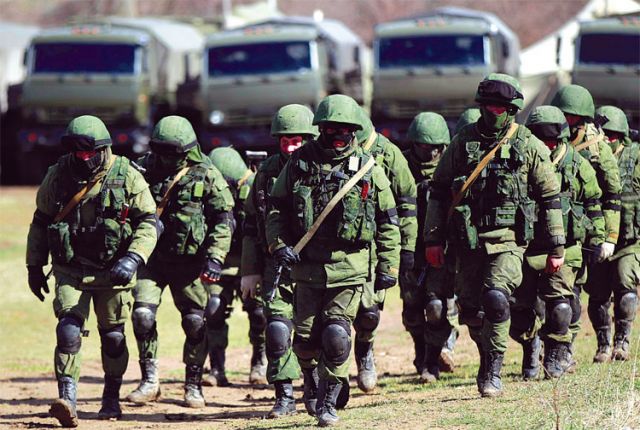Fr. David Nazar, a former pro-vincial superior of the Jesuits in English Canada, has been in Ukraine for more than a decade rebuilding Jesuit institutions that were crushed under Soviet rule that lasted from 1922 to 1991. He was scheduled to speak at the chapel in the EU’s Brussels head-quarters at The Register’s press time. He was also to meet with the Pope’s representative to the union of 28 European countries, Archbishop Alain Paul Charles Lebaupin, April 1.
Church interest in Ukraine’s future runs high at the moment, Nazar told The Catholic Register in an e-mail.
“There is a lot of interest in the Ukraine issue, not only with respect to Ukraine itself,” wrote Nazar. “(Russian President Vladimir) Putin’s nervous aggres-sion, which he has never justified publicly, upsets a major European agreement following World War II that borders would be left as they are.”
By annexing Crimea and massing troops on Ukraine’s eastern border, Russia is sowing chaos.
“The breach of this founding principle troubles the former Warsaw Pact countries which are now in the EU, among them half of Germany,” wrote Nazar. “Even without attacking, it is classical terrorism. It destabilizes because no one knows what he will do next, or where.”
Nazar’s EU talk was titled “Ukraine: Facing the future — Role of churches in the conflict.” In a piece published in the British Jesuit journal Thinking Faith, Nazar puts the case for the Ukrainian protest movement as a basically Christian and democratic movement to re-establish Ukraine’s place in Europe.
“This protracted standoff between an honest, popular yearning and deceitful, corrupt government was understood (in Ukraine) from the outset as a spiritual, even apocalyptic, battle between good and evil. It was un-imaginable without the youth and the Church,” Nazar wrote.
He describes the Russian takeover of Crimea as “less an act of aggression than an act of fear.”
The protest movement which escalated into the fall of the gov-ernment was a spiritual event, which could only happen within a culture that is deeply and es-sentially Christian, according to Nazar.
“Religious sensibility is at the heart of Ukrainian culture,” he said.
Jesuits who manned a tent chapel during the Euro-Maidan protests witnessed a rediscovery of Ukraine’s spiritual roots.
“We, Jesuits, helped out and were surprised by conversion stories,” Nazar said. “Unchurched people confessed that they felt God was with them on the maidan, that God cared about their just yearnings.”
The conversion included Ukraine’s intelligentsia, which began quoting Scripture to explain political and cultural events. Ukrainians began by demanding transparency and honesty from their government, but gradually added to their demands genuine democracy, an independent judiciary, reconciliation and social inclusion, said Nazar.
“It is these very values, whose roots are Christian and which the West takes for granted, that represent the longing of the people and the healing of the country,” said Nazar.
The Canadian complains that major media outlets are giving too much weight to Russian claims that extremist, nationalist and anti-Semitic elements have played a significant role in the revolution. The role of extremely rich oligarchs is also misunder-stood, Nazar said. Nor is there a significant split between Russian and Ukrainian speakers, given that even in the western capital city of Kiev 70 per cent of the population speaks Russian as a first language.
As Ukrainians pray for peace, they ask for prayers from the universal Church.
“At the Church’s prompting, much of Ukraine continues to pray and fast during Lent until all is resolved. This is a country acquainted with suffering and familiar with grief — and from this arises a hope in the fidelity of God.”

